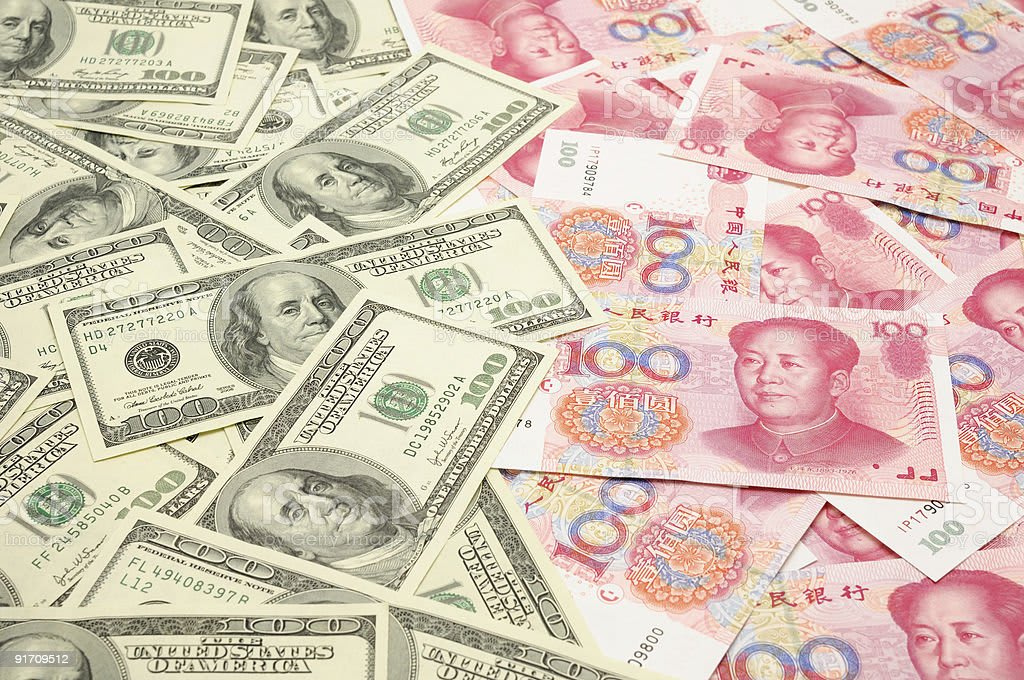The New Economic War is about to Begin
US DOLLAR VS RUSSIA AND CHINA

In recent news, China’s yuan has replaced the US dollar as the most traded currency in Russia. The switch occurred a year after the invasion of Ukraine that led to a slew of Western sanctions against Moscow. Data compiled by Bloomberg based on daily transaction reports from the Moscow Exchange showed that the yuan surpassed the dollar in monthly trading volume in February for the first time. The difference between the two currencies became even more pronounced in March. Before the invasion, the yuan’s trading volume on the Russian market was negligible.
The switch to the yuan comes after additional sanctions this year affected the few banks in Russia that retained the ability to make cross-border transfers in dollars and other currencies of countries branded “unfriendly” by the Kremlin. Raiffeisen Bank International AG, whose Russian branch remains one of the main conduits for international payments in the country, was among lenders that came under elevated pressure from European and US authorities.
Russia has deepened its ties with China since the Feb. 2022 invasion prompted a break in relations with the West. In March, Chinese President Xi Jinping made Moscow his first visit abroad after his reelection and promised the Kremlin expanded cooperation in the areas of trade, investment, supply chains, mega projects, energy and hi-tech. The Chinese leader also reiterated his commitment to multilateralism and the development of the China-Russia comprehensive strategic partnership.
Sweeping sanctions targeting Russia’s financial system have forced the Kremlin and Russian companies to switch their foreign-trade transactions from the dollar and euro to currencies of countries that have declined to join any restrictions. The Finance Ministry converted its market operations to the yuan instead of the dollar earlier this year and developed a new structure for the national wealth fund to hold 60% of its assets in yuan. The Bank of Russia regularly calls on companies and citizens to move their assets into the ruble or “friendly” currencies to avoid the risk of having them blocked or frozen.
Despite all that, the dollar remained the most popular currency on the Russian market until now, only rarely losing out to the yuan in terms of volumes on any given trading day, according to exchange data compiled by Bloomberg.
Although the yuan has been more popular in Russia, China’s capital account controls as well as geopolitical concerns among global investors remain a barrier as Beijing seeks to promote the currency’s usage overseas. Global foreign-exchange reserves allocation in the yuan accounted for about 2.7% of the total amount by the end of last year, down from the peak at 2.9% in the first quarter, IMF data showed. The Chinese government has been actively promoting the use of the yuan in international trade and finance, through measures such as the Belt and Road Initiative and the establishment of the Shanghai International Energy Exchange.
The recent shift towards the yuan in Russia can be attributed to a decrease in the dollar’s presence on the market, as Russia’s revenues decreased due to the drop in oil prices and a decrease in exports. At the same time, commodity imports from Russia to China are up by 29%, although exports from China are stagnating.
This trend of using alternative currencies to bypass Western sanctions is not limited to Russia. Other countries such as Iran and Venezuela have also sought to move away from the dollar in their international trade transactions. However, the United States remains the dominant global currency due to its strong economic and political influence. Nonetheless, the shift towards the yuan in Russia highlights China’s growing global economic power and its efforts to promote its currency as a viable alternative to the dollar.
About the Creator
waqar hussain
I am a content writer with a passion for covering international current affairs. I enjoy staying up to date with the latest news and trends from around the world.
Enjoyed the story? Support the Creator.
Subscribe for free to receive all their stories in your feed. You could also pledge your support or give them a one-off tip, letting them know you appreciate their work.





Comments
There are no comments for this story
Be the first to respond and start the conversation.